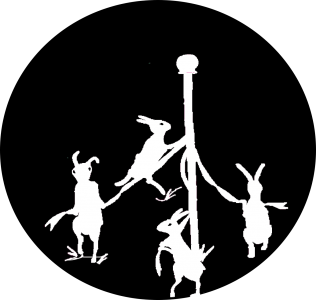Parenting, as I will come to talk about it, isn’t just about caring for your offspring (biological or not). Parenting is the journey we begin as infants that sets us up to be in EVERY SINGLE RELATIONSHIP for the rest of our lives. And it’s some shit, y’all.
We’ll start with attachment, because that’s the fucking beginning so it just makes sense. We’ll look to John Bowlby on this one; he figured that the most important thing a young child needs to ensure healthy development is a caring relationship with at least one primary caregiver. Urie Bronfenbrenner called this relationship ‘irrational’ (as in crazy) because it doesn’t make any fucking sense why we 1) find infants so damn cute (they’re actually super weird looking) and 2) would do anything (kill, risk death, steal, etc.) to ensure our children have what they need. Sometimes we may even have the irrational thought, because we feel so broken ourselves, that our child would be better off without us. A cliché would be to <story about dad going to get a pack of smokes and never coming home>.
Building on Bowlby’s work others have found that 1) having a secure attachment is best, 2) the sensitivity of the primary caregiver influences attachment, and 3) attachment predicts social and cognitive development. If you’ve never watched the Strange Situation or Still Face Experiment videos (YouTube has ‘em) consider yourself lucky; it’s so ubiquitous in my little world that I fucking suffer through it at least a few times a year. It’s uncomfortable, as it should be, because it cuts to the heart of sensitive caregiving which is basically my whole point here. When we talk about earliest life, we should strive to avoid talking about ‘infant’ and ‘primary caregiver’ (often the nursing parent) as two things; they are truly one, a dyad, because of the deep interdependence on one another.
So, unless you have a young child in your life or plan to soon… why the hell should you care? Because your adult relationships, especially the intimate ones, are shaped by the attachment you formed as a child. If you achieved secure attachment to a primary caregiver during infancy, congrats you’ll have a mostly secure adult attachment style too. But if something happened to jeopardize attachment, things you may or may not know about, during your infancy and early childhood it may be affecting your ability to be in relationships and to parent in the ways you want to. Most of us have been socialized to avoid discussing family trauma; as if doing so makes the trauma and it’s impacts go away (spoiler: it super fucking doesn’t).
Aside from inventing a time machine what could anyone do to correct this whole situation if it began in infancy? Luckily, awareness and self-reflection seem to be a damn good place to start. Learning about attachment styles, reflecting on your earliest memories of receiving irrational love, and be willing to acknowledge your childhood pain. There are numerous adult attachment assessments, I’ve done this one in the past (not that I think it’s better than any other, it’s just the most user friendly I have found). As a parents we deserve to have a mutually fulfilling relationship with our children; if that is lacking then counseling, especially with a professional who understands adult attachment styles, can help.
